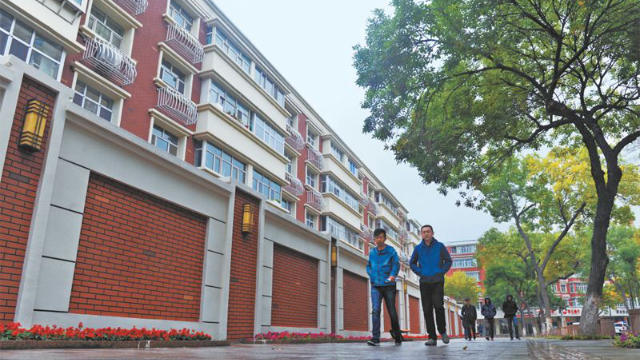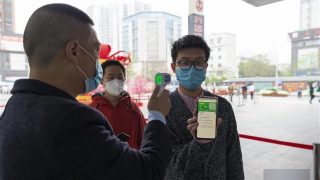Even a visit to a family member or a trip outside the region required to be registered with government officials. Those overstaying could be punished.
by Chang Xin

Xinjiang Uyghur Autonomous Region is one of the best examples of how the CCP’s totalitarian regime monitors and controls its population in every aspect of their lives. On top of ubiquitous surveillance, total control over what people say, do or wear, and absurd restrictive requirements in their homes and workplaces – like registering and coding or chaining their tools and wearing riot gear – Xinjiang residents face new constraints on their travels. Also, who and for how long visits them.
Obligatory reporting on entering and leaving Xinjiang
At the end of last year, each dweller of one of the Urumqi city’s residential communities received a notification on their mobile phones, requiring them to register with the community office any out of town guests visiting them. If they plan to visit friends and relatives or go for work outside Urumqi, they must get the community office’s written permissions, which they should take along while traveling.
Such restrictions imposed on residents of Xinjiang is not a one-of-the-kind incident. A woman from Shihezi, a city in the north of Xinjiang, told Bitter Winter that one day in December 2018, she had just finished having dinner at her younger brother’s house, when he rushed her to leave, saying that the community officials were inspecting household registrations. The brother explained to her nervously that even if she brought her ID card with her, her visit would still cause troubles for him and her.
“The inspections are rigorous now, community officers demanding residents to go to the village committee to register in advance if someone comes to stay at their home,” the woman’s brother said. He recounted how a friend of the family he knows came to visit them and stayed one day longer than the five days indicated in the request. “After the village committee found out, they demanded her to leave immediately or re-apply for permission,” the man remembered.
Not wanting to cause problems to her bother, the woman left immediately. As soon as she stepped through the door, she bumped into three officials who demanded to enter her brother’s home to “take a look.”
A woman who lives in Karamay, a prefecture-level city in northern Xinjiang, was exasperated after a similar ordeal. A relative who came to visit her recently had to leave hurriedly after staying for only two hours. The reason for his hasty departure was the newly-introduced system to enter her residential community, featuring access cards and security guards. Every person who comes must register their ID information at the time of their visit – visitors who stay longer than two hours might be questioned by community staff.
Going home like visiting a jail
Ms. Liu, who currently lives in the northeastern province of Liaoning, is originally from Xinjiang and is still registered there. At the beginning of this year, she and her husband returned to Xinjiang to visit her family. After arriving in Urumqi, the police questioned her about her religious beliefs and demanded her to provide the names of superiors in her workplace and officials of her residential community, the phone number of the head of the police station in the area where she currently resides in Liaoning, and similar information. The police also used special equipment to check for “sensitive” content on her mobile phone. The entire process lasted for about 20 minutes.
In the locality where her parents live, the woman was required to provide more information to the local police station and the village committee, including her ID information, the reason for visiting relatives, and the duration of her stay. She was required to leave at the time she has specified to the authorities. “If you leave a few hours early, that’s fine. But if you exceed the specified time, that is unacceptable,” police officers told Ms. Liu.
The woman feels that these complex registration procedures are excessive. “Why should I be surveilled if I’m returning to my parents’ home?” Ms. Liu was angry. According to her, the clampdowns in Xinjiang now resemble and are even worse than the times after the establishment of the People’s Republic of China in 1949 or the Cultural Revolution. “My younger sister warned me not to tell these things to anyone else, just family members; otherwise, the government will probably say that I am revolting,” Ms. Liu remembered the conversations with her family in Xinjiang.
Source:BITTER WINTER/Chang Xin



